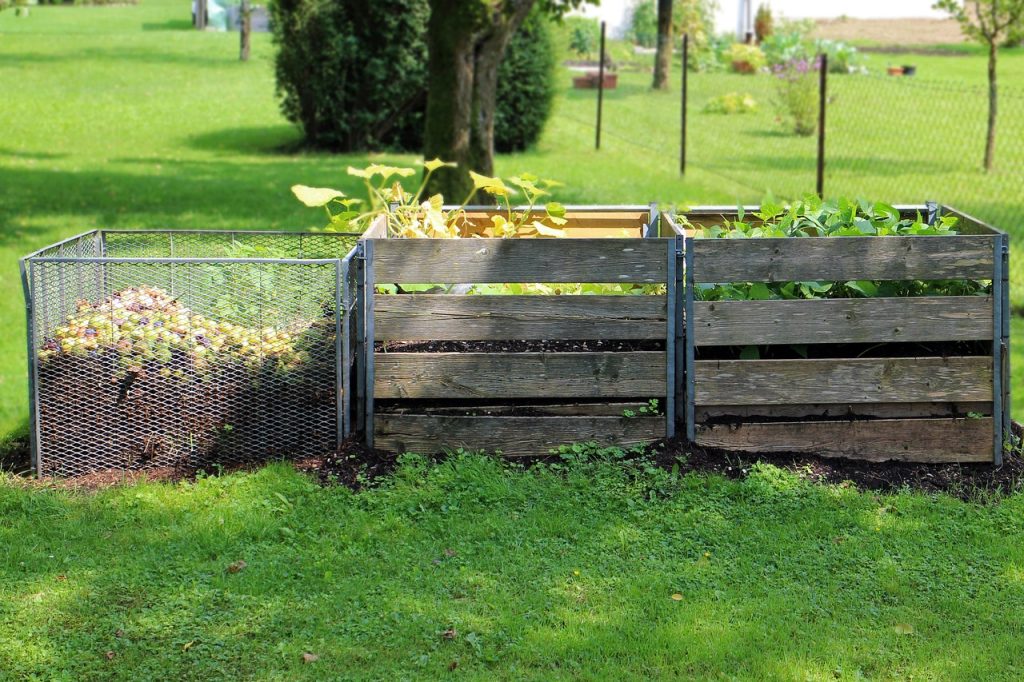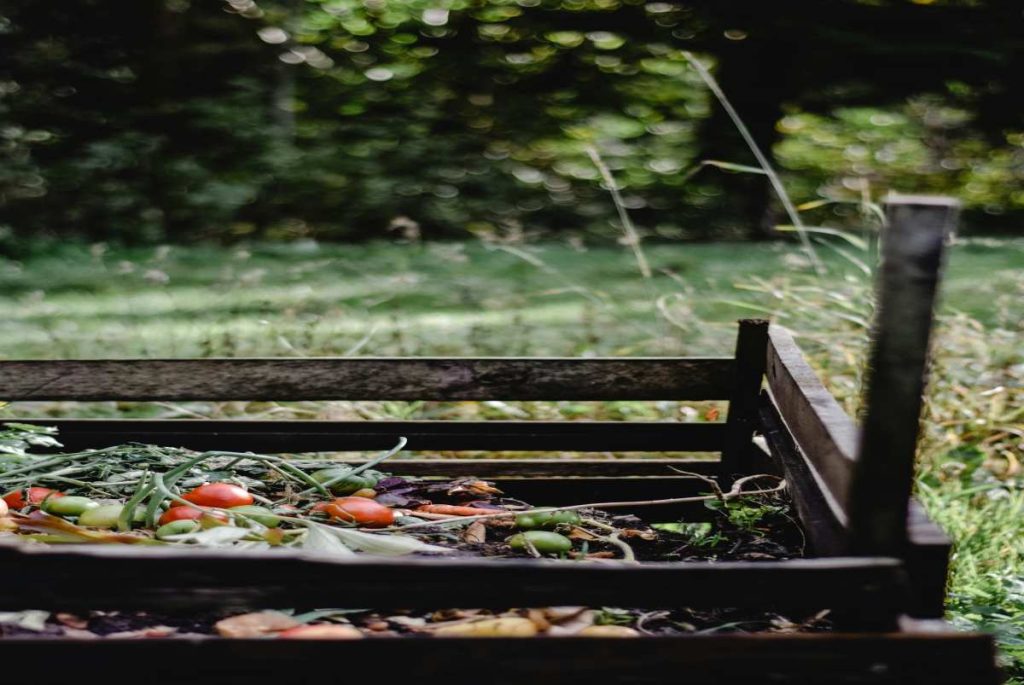Composting grass clippings and lawn waste is an excellent way to recycle organic matter, improve your garden soil, and reduce the environmental impact of waste. Many homeowners often dispose of their grass clippings by bagging them and throwing them away, but composting them offers numerous benefits for both your garden and the planet. This guide explores the advantages of composting grass clippings, tips on how to do it effectively, and why you should make it a regular part of your lawn care routine.
1. Reduces Waste in Landfills
Benefit:
In many areas, grass clippings make up a significant portion of landfill waste. By composting your lawn waste, you can help reduce the amount of organic material that ends up in landfills, where it takes up valuable space and contributes to harmful greenhouse gas emissions as it decomposes anaerobically (without oxygen).
Why It Matters:
Organic waste in landfills, including grass clippings, produces methane—a potent greenhouse gas. Composting helps avoid this issue by allowing grass clippings to break down in an aerobic (oxygen-rich) environment, which releases far fewer harmful gases.
2. Creates Nutrient-Rich Soil for Your Garden
Benefit:
Composting grass clippings adds valuable nutrients to your garden soil. Grass clippings are rich in nitrogen, which is an essential nutrient for plant growth. When added to compost, grass clippings help create a balanced compost mix that can improve soil fertility.
Why It Matters:
The nitrogen in grass clippings helps plants thrive by promoting healthy foliage growth. When used as compost, these nutrients become readily available to your plants, resulting in healthier crops, more vibrant flowers, and lush lawn growth.
3. Improves Soil Structure and Drainage
Benefit:
Composting grass clippings, along with other organic materials, enhances the structure of your soil. As compost breaks down, it adds organic matter to the soil, improving its texture, aeration, and moisture retention. This is particularly beneficial for sandy soils, which tend to drain too quickly, and clay soils, which can become compacted and waterlogged.
Why It Matters:
Improved soil structure helps water penetrate more effectively, reduces erosion, and allows roots to grow deeper and more efficiently. The better your soil quality, the healthier your garden will be.
4. Prevents Excessive Lawn Fertilizer Use
Benefit:
By composting grass clippings, you can reduce the need for chemical fertilizers. Grass clippings contain nutrients that naturally replenish the soil, such as nitrogen, phosphorus, and potassium. When you use them as part of your compost, you are creating a more sustainable way to nourish your lawn and garden.
Why It Matters:
Using compost made from grass clippings allows you to provide your garden with the essential nutrients it needs without relying on synthetic fertilizers, which can be harmful to the environment. Composting also helps reduce your carbon footprint by reducing the need to buy and apply chemical products.
5. Reduces Lawn Maintenance Costs
Benefit:
Composting your grass clippings can save you money in the long run. By using the compost to improve your soil, you reduce the need for expensive soil amendments, fertilizers, and other lawn care products. Furthermore, instead of paying for waste disposal services to collect and haul away your clippings, you can use them to enhance your garden.
Why It Matters:
With the rising costs of lawn care products and waste management, composting is a simple way to reduce your overall expenses and make your lawn and garden more self-sustaining.
6. Reduces the Risk of Lawn Thatch Build-Up
Benefit:
Thatch is a layer of dead grass, roots, and other organic matter that can build up on the surface of your lawn. If it becomes too thick, it can block water and nutrients from reaching the soil and promote the growth of lawn pests and diseases. When you compost your grass clippings, you help break down thatch naturally.
Why It Matters:
Composting grass clippings helps prevent thatch from accumulating and keeps your lawn healthy by ensuring that water, air, and nutrients can reach the grass roots more effectively.
7. Promotes a Healthier Lawn

Benefit:
Using compost made from grass clippings can directly benefit your lawn by enriching the soil with organic matter and nutrients. When applied as a top dressing or mixed into the soil, compost improves root health and supports the overall growth of the grass. This can result in a greener, thicker, and more drought-resistant lawn.
Why It Matters:
A healthy lawn is more resilient to pests, diseases, and environmental stressors. It also requires less water and fertilizer, making it a more sustainable choice for homeowners.
8. Encourages a Greener, More Sustainable Lifestyle
Benefit:
Composting your grass clippings is a simple yet powerful way to contribute to a more sustainable and eco-friendly lifestyle. It helps reduce landfill waste, decreases your need for chemical fertilizers, and reduces the amount of synthetic products you use in your lawn care routine.
Why It Matters:
Small changes like composting lawn waste have a big impact on the environment. By adopting eco-friendly practices, you are not only improving your garden but also playing a part in promoting sustainability in your community.
How to Compost Grass Clippings Effectively
To compost your grass clippings effectively, follow these tips:
- Alternate Layers: Grass clippings are high in nitrogen, so to avoid creating a smelly, slimy compost pile, mix them with brown materials like leaves, straw, or cardboard. This helps balance the carbon-to-nitrogen ratio and promotes better aeration.
- Avoid Clumping: Grass clippings can mat together and create a dense, wet layer that doesn’t decompose properly. To prevent this, spread the clippings out in thin layers and turn the compost pile regularly.
- Dry Out Wet Clippings: If the clippings are wet from rain or dew, allow them to dry out before adding them to your compost. Wet clippings can become compacted, leading to poor airflow and slower decomposition.
- Shred or Chop Large Clippings: If the grass clippings are long or thick, chop or shred them to increase surface area and speed up the decomposition process.
Conclusion
Composting grass clippings and lawn waste is a simple and highly beneficial practice for any homeowner looking to improve their garden, reduce waste, and promote sustainability. By composting, you not only recycle nutrients back into your soil but also save money, improve your lawn’s health, and help protect the environment. Whether you’re composting for the first time or you’re a seasoned gardener, using grass clippings in your compost pile is a smart and eco-friendly way to enhance your garden’s success.

